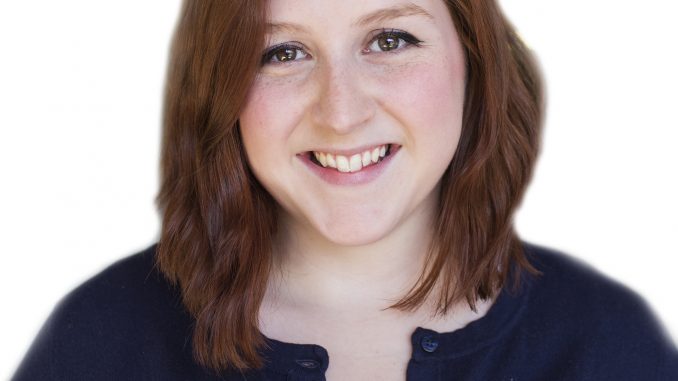
 Center City experienced a sea of pink last week on the corner of Locust and 11th streets.
Center City experienced a sea of pink last week on the corner of Locust and 11th streets.
Supporters of Planned Parenthood gathered with signs to learn more about the organization and to give their support.
“Personal health care decisions are private matters,” a sign read.
I thought this way too, all my life, each time I went to the doctor for a wellness check-up or when I got an ear infection. The first time I used Student Health Services at Temple, I remember filling out the on-screen form, surrounded by other students, having to pick some symptoms or a reason for the visit.
What if one of them sees? I was there for a cough I couldn’t shake, but none of the other drippy, wheezing students needed to know what medication I had been taking to combat it, or other symptoms from which I was suffering.
Health is a private matter, one of the things delegated to be an issue of the home by politicians of the past.
Many of the Republican candidates running for the 2016 presidential election think the opposite, though, thrusting health care, especially reproductive rights, into the spotlight. Many support the idea of stopping federal funding to Planned Parenthood, some even aiming to make abortion illegal again.
Much of what Planned Parenthood does is STD/STI screening, providing contraception, wellness checks and sexual education sessions.
Some of these services are offered at Main Campus’ Student Health Services, but many students will need more. Planned Parenthood offers counseling for the relationship aspects of sex and sexuality, offers services for victims of domestic abuse, sexual abuse or assault and cancer screenings, all at rates college students can more likely afford, especially if they are uninsured or no longer allowed on their parent’s insurance. Aside from these services, the organization offers all kinds of family planning from prenatal care, information about pregnancy and regular doctors visits during pregnancy. Their slogan promotes their inclusiveness: “Care, no matter what.”
The site said 400,000 Pap tests, nearly 500,000 breast exams and 4.5 million STD/STI screenings are performed, as well as 1.5 million young people and adults who receive sexual education each year.
Several publications have already pointed out not every Planned Parenthood location performs abortions, and the ones that do only make up about 3 percent of its services. When abortion services are performed, it is not funded by federal money unless in the case of rape, incest, or when the mother’s life is at-risk.
No matter where you stand on the issue of abortion, its variety of other services is enough to persuade those against Planned Parenthood that what it does is valuable.
Perhaps the biggest disappointment in the case against the organization is Carly Fiorina, a so-called proprietor of women, a woman who, at last month’s GOP debate said, “We need to stop treating women as a special interest group, they are the majority of voters in the country.”
Fiorina spoke against the organization at a South Carolina Christian pregnancy center. “The character of this nation cannot be about butchery of babies for body parts,” she said.
“When it comes to Planned Parenthood, Carly Fiorina appears to be playing out a relatively common political strategy: Say something forcefully and frequently enough, and people will start to believe you, even if it’s totally untrue,” a New York Times article said this week.
Many people who support the defunding of Planned Parenthood are missing the mark, leaving out all the good the organization does, and dwelling on the idea that abortions should bring it down. While these other services are “good,” and unarguably beneficial and necessary to those using them, abortion gets left out.
The thing is, whether you consider abortion “good” or “bad,” it is legal. “As in, legal, legal, legal,” a Philly Mag article from last month said. “So f—ing legal.”
In 1973, the Supreme Court ruled on Roe v. Wade, a case that decided abortion, in its former, illegal state, was violating women’s due process rights. This decision followed a case one year prior, which legalized access to contraception in the form of The Pill. A right to privacy was included in the ruling.
If abortion is made illegal, or heavier restrictions are placed upon the circumstances in which a women can receive one, abortions will not stop happening. They will, however become more dangerous.
According to a CNN report, the 1930s were one of the most dangerous times to seek an abortion—illegal abortions caused 14 percent of all maternal deaths. It was also the first time economists linked the state of the economy to reproduction trends.
The report also said 2011 was the lowest year for abortions since before the Supreme Court ruled the procedure become legal.
While it is likely that any future politician would be able to overrule a decision from the Supreme Court that has withstood the last 40 years, students should recognize Planned Parenthood as an asset to themselves, their friends and those who need safe, affordable health care.
If federal funding were to halt, it’s likely abortions would continue to be funded through donations and out-of pocket payments. Services like cancer screenings and prenatal care, though, would be gone.
We have a lot to lose.
Paige Gross can be reached at paige.gross1@temple.edu or on Twitter @By_paigegross.


Be the first to comment